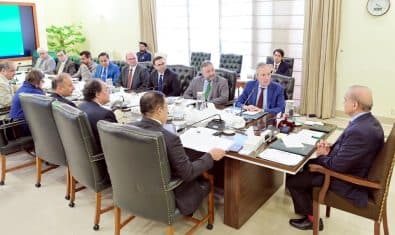The condition of being an income tax return filer shall not apply to persons purchasing locally manufactured motorcycles, rickshaws and motorcycle-rickshaws under section 227C of the Income Tax Ordinance 2001.
The Federal Bureau of Revenue (FBR) has explained the ban on transfer of immovable property or a new motor vehicle to a non-filer (Section 227C) through income tax circular 3 of 2018 issued here on Thursday.
According to the FBR, in order to reinforce efforts being made for broadening of the tax base and to bring about an increase in the number of return filers, a new section 227C has been inserted through the Finance Act, 2018 whereby applications for booking, registration or purchase of a new locally manufactured motor vehicle or for the first registration of an imported vehicle shall not be accepted or processed by any vehicle registering authority or a manufacturer of a motor vehicle unless the person is a filer as defined in section 2(23A) of the Income Tax Ordinance.
It would also be pertinent to mention that all motor vehicles regardless of their engine capacity would fall within the purview of this newly inserted section 227C of the Ordinance. Moreover, it would also be pertinent to mention that the term motor vehicle would include within its ambit all types of automobiles including cars, jeeps, vans, trucks, etc, irrespective of whether it is for private or commercial use.
However, section 227C does not extend to motorcycles, rickshaws and motorcycle- rickshaws i.e. condition of being a filer shall not extend to persons purchasing locally manufactured motorcycles, rickshaws and motorcycle-rickshaws.
Furthermore, consequent to the introduction of Section 227C of the Ordinance, through the Finance Act, 2018 any authority responsible for registering, recording or attesting transfer of any immovable property exceeding five million rupees shall not accept or process any application or request by a person for registering, recording or attesting transfer of any immovable property exceeding Rs. 5 Million unless such person is a filer as defined in section 2(23A) of the Ordinance. It would be pertinent to mention that such immovable property includes within its ambit agricultural, commercial, residential plots/land, houses, buildings, apartments, malls, flats etc. Moreover the authorities responsible for registering, recording or attesting transfer of immovable property include housing authorities, housing societies, co-operative societies, registrar of properties etc.
The FBR said that a major initiative to correct the valuation of real estate for the purpose of taxation has been taken through the Finance Act 2018, whereby the government has introduced a new section 230F to the Income Tax Ordinance 2001. Sub-section (1) of Section 230F of the Ordinance provides for the establishment of a new Directorate General of Immovable property (DG-IP). This new office will be endowed with the necessary capacity and legal jurisdiction to establish and implement a framework for taxation of immovable property. Sub-section (3) empowers the Directorate General to undertake proceedings for acquisition of property for reasons and purposes enumerated in sub-section (4). As per this sub-section, the proceedings under sub-section (3) shall be initiated, where the Director General, on the basis of valuation made by it, has reason to believe that any immovable property of a fair market value has been transferred by a person (transferor), to another person (transferee), for a consideration which is less than the fair market value of the immovable property and that the consideration for such transfer as agreed to between the transferor and transferee has been understated in the instrument of transfer for the purposes of the avoidance or reduction of withholding tax obligations under this Ordinance and concealment of unexplained amount referred to in sub-section (1) of section 111 representing investment in immovable property; or (c) avoidance or reduction of capital gains tax under section 37.
The valuation mechanism (appointment of valuator and its working), is to be prescribed. Sub-section (8) restricts the period for initiation of proceedings within six months of the transfer of immovable property. The manner of proceedings, opportunity of being heard for transferor and transferee and making of the final order for acquisition of property are the subjects covered under sub-sections (9) to (11). The appellate procedures against the orders of the DG-IP are specified in sub-sections (12) to (18).
If the order of DG-IP, made under sub-section (1), survives the test of appellate forums, the immovable property and all rights including ownership rights therein shall be vested in the Federal Government with same rights and enjoyments as would have persisted under the previous ownership in terms of sub-section (19) of the newly inserted section 230F of the Ordinance. Sub-section (20) provides for payment to the owner of ‘consideration for acquisition’, which is defined in sub-section (21) as twice the price at which the transferor and transferee have executed the transfer of property which is the subject of proceedings.
The aim of the federal government is to make correct assessment of fair value of the property for the purpose of raising tax demands. However, as per sub-section (22), the new provisions including the appointment of Directorate General will come into force on the date as notified by the Federal Government. Considerable preparatory work has to be done before this notification can be issued. This includes necessary notifications regarding funds, valuation mechanism, appointment of appellate authorities and consultations with the provinces for requesting them to withdraw their valuation tables and reducing their tax rates on property transaction. Accordingly, sub-section (22) provides that the provisions of section 230F shall remain inapplicable unless a notification by the Federal Government is issued. After the issuance of the notification, provisions of the existing sections 111, 236C and 236W shall not apply whereas rates under section 236K shall be reduced to 1%. However, till the date of issuance of the said notification, tax required to be collected under section 236C, 236K and 236W shall continue to be collected. Moreover, provisions of Section 111 shall also continue to be applicable, the FBR added.
The FBR has also explained collection of advance tax on purchase of property to be made alongwith each installment in instances where payments for purchase of property is made piecemeal [Section 236k].
Prior to the Finance Act, 2018, advance tax on purchase of immovable property under section 236K of the Income Tax Ordinance, 2001 was collected at the time of registering, recording or attesting transfer of any immovable property. In instances where payments for purchase of property are being made in installments the purchaser has to bear the entire burden of collection of such advance tax at the time of transfer of the immovable property. In order to provide relief to purchasers of immovable property making payments in installments, advance tax under section 236K of the Ordinance on the purchase of immovable property shall, pursuant to the Finance Act, 2018 be collected at the time of collecting installments @ 2% for filers and 4% for non-filers (where the value of immovable property exceeds Rs.4 Million) along with each installment where the transfer is to be effected after making payment of all installments of immovable property.




























Yahi Haal Raha to Agle Saal Bike 70Cc New (Purchasing) Pe Bhi Padabndi Laga Day Denge NON Filer Pe
Good step
Why good step? i am a salaried person and already paying income tax against my CNIC number. than why do i have to spend time and more money on filing my returns. Its pathetic.
It’s not pathetic. If there will be no returns, it’s going in favor on your employer. You never know whether is pays your tax or not while you are paying every month :(
Filing Return for salaried person will not cost you anything extra, its a declaration that you are paying a tax on your income, thats it.
If a farmer in a village wants to buy a tractor or a pick-up for his farming purposes and he is illiterate or semi-literate, he would have to first find a tax lawyer, pay him a handsome amount to become a filer and then buy the vehicle. And same might go on for him in coming years i.e. an expensive hassle every year to file tax returns !
There should at least be some simplified and less complex system of tax affairs. Why do we always forget our rural populace and focus on city slickers only when making policies?
Handsome amount for filing a return? sorry but not right
literate person can do by his own and semi or illiterate person can pay like Rs.5000 to lawyer and can get it done.